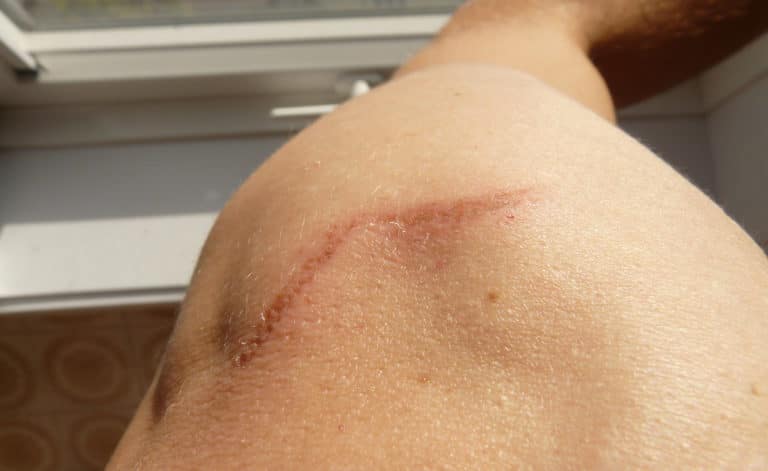While scarring may only be skin deep, that does not make the effects of a visible scar on your self-confidence any less real. Below we break down the emotional impact scars can have, highlighting the importance of scar revision procedures for many people.
What Are Scars?

Scars are a sign of your body’s healing process. When the deep layer of skin is damaged, known as the dermis, the body produces new collagen fibers to fix the damage. The scar tissue will have a different quality and texture than the surrounding tissue.
Most scars are pale and flat. They can be raised if the body produces too much collagen and sunken if the supporting structure under the skin is lost. Scars can also appear when skin is stretched rapidly or when the skin is under tension.
Impact on Quality of Life
According to the World Health Organization, quality of life is defined as “the individual’s’ perception of their position in life, in the context of the cultural and value system in which they live and in relation to their goals, expectations, standards, and concerns.”
A small 2008 study interviewed 34 patients between the ages of 14 to 70 about the physical and psychosocial impact their scars had on their lives. The researchers collected 573 statements from interview transcripts. They organized the information into 44 different themes covering five main areas:
- Physical comfort and functioning
- Acceptability to self and others
- Social functioning
- Confidence in the nature and management of the condition
- Emotional well-being
The majority of participants were unhappy about the appearance of their scars because of perceived stigma and psychological associations. Many adopted coping behaviors, which made them less sociable and interfered with their personal relationships, work life, communication skills and leisure activities.
Does Location Matter?
High visibility of scars was determined to be the most important characteristic that causes patients to be unhappy with their appearance. Negative body image is more closely associated with visibility than scar size.
Face scars were determined to the most psychologically significant location, as they are both highly visible and difficult to conceal.
Scar Revisions
Fortunately, surface treatments are an option to help soften the appearance of your scar or reduce the uneven pigmentation. Injections can help reduce raised scars and soft tissue fillers can lift up sunken scars.
To talk to an expert about the impact your scar is having on your mental health or to schedule an appointment with our facial plastic surgeon, contact ENT of Athens today.